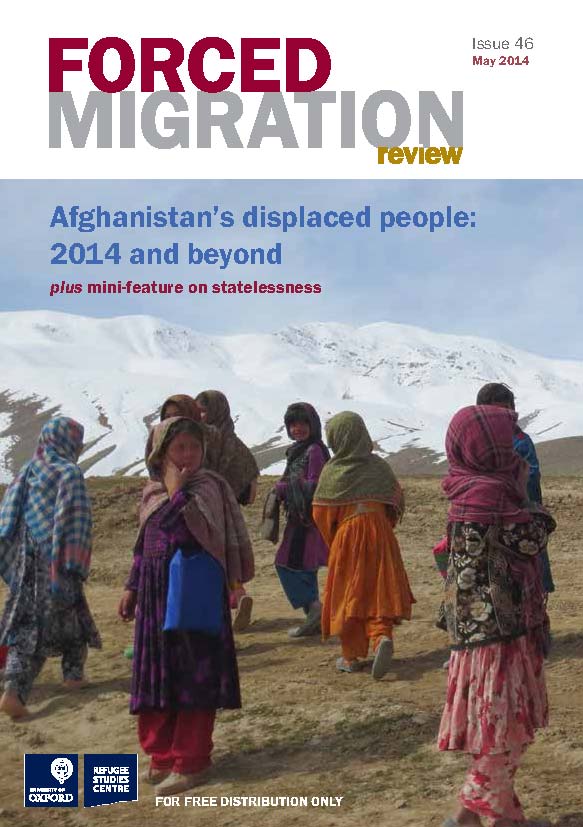FMR 46
Afghanistan’s displaced people: 2014 and beyond
May 2014
2014 is widely seen as marking a watershed for Afghanistan with its legacy of 35 years of conflict and one of the world’s largest populations in protracted displacement. International military forces are being withdrawn and the country is ‘in transition’, and there is still considerable uncertainty about the capacity of the country to address the challenges of return, integration and reintegration, protection, access to rights, and continuing displacement. FMR 46 contains 21 articles on Afghanistan, plus a mini-feature on Statelessness.

FMR 46
Afghanistan’s displaced people: 2014 and beyond
May 2014
2014 is widely seen as marking a watershed for Afghanistan with its legacy of 35 years of conflict and one of the world’s largest populations in protracted displacement. International military forces are being withdrawn and the country is ‘in transition’, and there is still considerable uncertainty about the capacity of the country to address the challenges of return, integration and reintegration, protection, access to rights, and continuing displacement. FMR 46 contains 21 articles on Afghanistan, plus a mini-feature on Statelessness.